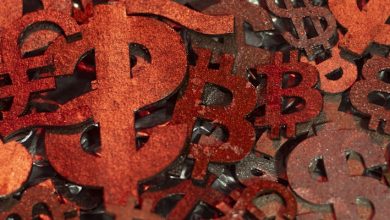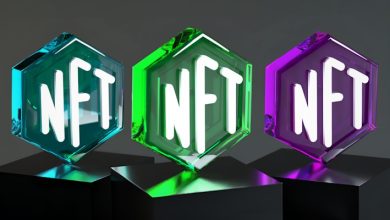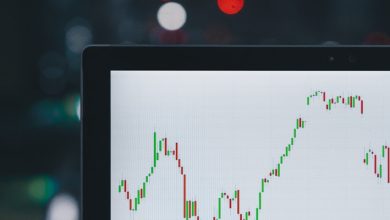DeFi Market Insights: Growth, Challenges, and Opportunities

- Understanding the DeFi Market Landscape
- Exploring the Factors Driving DeFi Market Growth
- Challenges Faced by the DeFi Ecosystem
- Opportunities for Innovation in the DeFi Space
- Regulatory Considerations for DeFi Platforms
- Investment Strategies for DeFi Market Participants
Understanding the DeFi Market Landscape
The DeFi market landscape is constantly evolving, with new projects and platforms emerging regularly. Understanding the various aspects of this dynamic environment is crucial for investors and enthusiasts alike. By analyzing the growth, challenges, and opportunities within the DeFi space, stakeholders can make informed decisions and navigate the market effectively.
Exploring the Factors Driving DeFi Market Growth
The DeFi market growth can be attributed to various factors driving its expansion and adoption. These factors play a crucial role in shaping the landscape of decentralized finance and attracting more users and investors to this innovative space.
One of the key drivers of DeFi market growth is the increasing demand for decentralized financial products and services. As traditional financial systems face challenges and limitations, users are turning to DeFi for more efficient, transparent, and inclusive alternatives. This rising demand for decentralized solutions is fueling the growth of the DeFi market.
Another factor contributing to the growth of DeFi is the advancements in blockchain technology. With the development of smart contracts, decentralized applications (dApps), and other innovative solutions, DeFi platforms are able to offer a wide range of financial services without the need for intermediaries. These technological advancements are driving the expansion of the DeFi market and opening up new opportunities for users and developers.
Furthermore, the global adoption of cryptocurrencies is also playing a significant role in the growth of the DeFi market. As more people embrace digital assets and explore the possibilities of blockchain technology, the demand for decentralized financial services continues to increase. This widespread adoption of cryptocurrencies is creating a fertile ground for DeFi platforms to thrive and expand their user base.
In addition, the decentralized nature of DeFi platforms is attracting users who value autonomy, privacy, and security in their financial transactions. By eliminating the need for centralized authorities and intermediaries, DeFi offers users greater control over their assets and data, leading to a more secure and transparent financial ecosystem. This focus on decentralization is driving the growth of the DeFi market and attracting a diverse range of users from around the world.
Overall, the factors driving the growth of the DeFi market are diverse and interconnected, creating a dynamic and evolving ecosystem that holds immense potential for innovation and growth. As decentralized finance continues to gain traction and disrupt traditional financial systems, the future of DeFi looks promising, with new opportunities and challenges on the horizon.
Challenges Faced by the DeFi Ecosystem
One of the main challenges facing the decentralized finance (DeFi) ecosystem is the issue of security. With the rapid growth of the DeFi market, there has been an increase in the number of hacks and vulnerabilities in various DeFi protocols. This has led to a lack of trust among users and investors, hindering the further adoption and growth of DeFi platforms.
Another challenge is the scalability of DeFi protocols. As the number of users and transactions on DeFi platforms continues to increase, many protocols are struggling to handle the high volume of transactions efficiently. This has resulted in network congestion and high transaction fees, making it less attractive for users to participate in DeFi activities.
Moreover, regulatory uncertainty poses a significant challenge to the DeFi ecosystem. As governments around the world are still trying to understand and regulate DeFi, there is a lack of clarity on how DeFi platforms should comply with existing regulations. This uncertainty has created a barrier for institutional investors and traditional financial institutions to enter the DeFi space.
Additionally, the lack of interoperability between different DeFi protocols is hindering the seamless flow of assets and liquidity across various platforms. This fragmentation of the DeFi ecosystem limits the potential for innovation and collaboration among different projects, slowing down the overall growth of the DeFi market.
Overall, addressing these challenges will be crucial for the long-term sustainability and growth of the DeFi ecosystem. By enhancing security measures, improving scalability, clarifying regulatory frameworks, and promoting interoperability, the DeFi market can overcome these obstacles and unlock new opportunities for innovation and financial inclusion.
Opportunities for Innovation in the DeFi Space
In the rapidly evolving landscape of decentralized finance (DeFi), there are abundant opportunities for innovation that can drive growth and overcome challenges. By exploring new avenues for creativity and problem-solving, participants in the DeFi space can unlock new potential for financial services and products.
One key area for innovation in DeFi is the development of interoperability solutions that allow different protocols to seamlessly communicate and interact with each other. This can help to create a more interconnected DeFi ecosystem where users can access a wider range of services and assets. Additionally, improving user experience and accessibility through intuitive interfaces and user-friendly applications can help to onboard more users to DeFi platforms.
Another promising opportunity for innovation in DeFi is the integration of decentralized identity solutions to enhance security and privacy for users. By leveraging blockchain technology for identity verification and authentication, DeFi platforms can increase trust and reduce the risk of fraud. Furthermore, advancements in decentralized governance mechanisms can empower users to have a greater say in the decision-making processes of DeFi protocols.
Overall, the DeFi space is ripe with opportunities for innovation that can drive growth and address challenges. By staying ahead of the curve and continuously pushing the boundaries of what is possible, participants in the DeFi ecosystem can shape the future of finance in a decentralized and inclusive manner.
Regulatory Considerations for DeFi Platforms
When it comes to DeFi platforms, one of the key considerations that cannot be overlooked is the regulatory landscape. As the popularity of decentralized finance continues to grow, regulators around the world are paying closer attention to these platforms to ensure compliance with existing laws and regulations. This increased scrutiny has led to a number of challenges for DeFi platforms, including uncertainty around how they will be regulated and what impact this will have on their operations.
It is essential for DeFi platforms to stay informed about the regulatory environment in which they operate and to proactively engage with regulators to address any potential issues. This can help to mitigate regulatory risk and ensure that the platform is able to continue operating in compliance with the law. Some key regulatory considerations for DeFi platforms include:
- Compliance with anti-money laundering (AML) and know your customer (KYC) regulations
- Ensuring the security and privacy of user data
- Adherence to securities laws and regulations
- Transparency and disclosure of information to users
By addressing these regulatory considerations proactively, DeFi platforms can position themselves for long-term success and growth in the rapidly evolving decentralized finance landscape.
Investment Strategies for DeFi Market Participants
For participants in the DeFi market, it is crucial to have a solid investment strategy in place to navigate the ever-changing landscape of decentralized finance. Here are some key strategies to consider:
- Diversification: Spread your investments across different DeFi projects to mitigate risk and maximize potential returns.
- Research: Conduct thorough research on projects before investing to ensure they align with your investment goals and risk tolerance.
- Stay Informed: Stay up to date with the latest trends, news, and developments in the DeFi market to make informed investment decisions.
- Risk Management: Use risk management tools such as stop-loss orders and position sizing to protect your investments from market volatility.
- Long-Term Perspective: Consider taking a long-term investment approach rather than attempting to time the market for short-term gains.
By following these investment strategies, DeFi market participants can position themselves for success in this rapidly growing and evolving sector of the cryptocurrency market.



